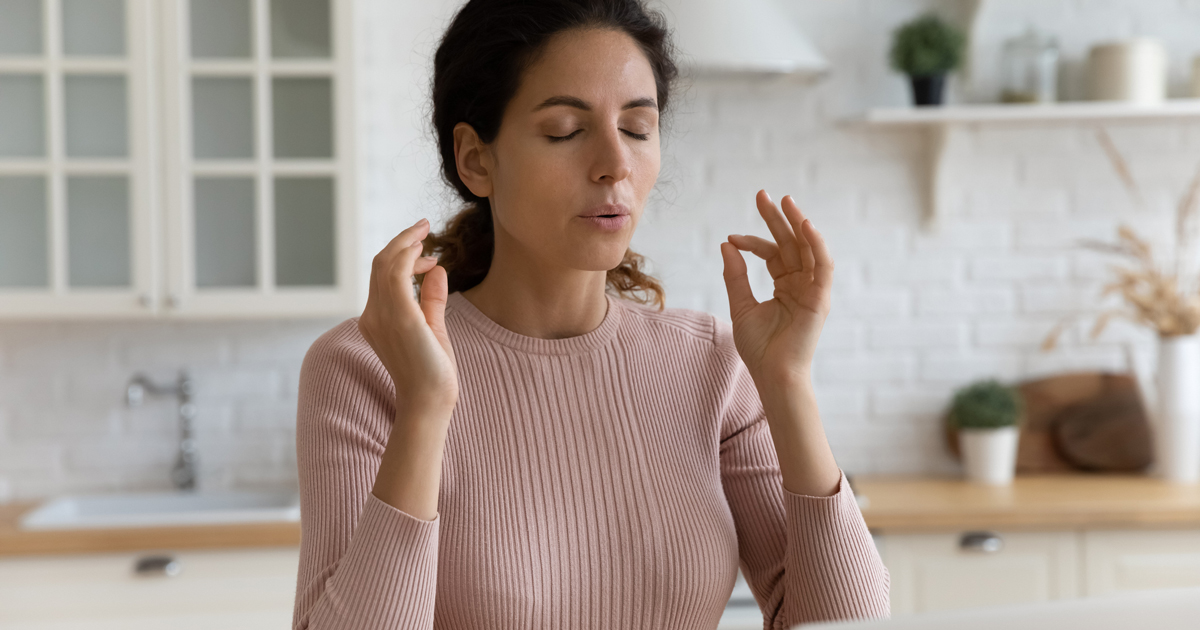Do candy Warheads stop panic attacks? 5 panic attack hacks that work

The first step to stopping a panic attack is to recognize the signs of one.
"Everybody might experience a panic attack differently," says psychiatric social worker Chantel Bruha, LICSW, LADC. "Some people feel like they can't breathe or even have thoughts that they might be dying. Often they feel an impending sense of doom."
Signs of a panic attack
• Accelerated or pounding heartbeat
• Shortness of breath
• Feeling like you might be dying
• Impending sense of doom
• Chest pain or tightness
• Sweating
• Trembling or shaking
Panic attacks can look similar to heart attacks, especially in women. Find out the key differences between panic attacks and heart attacks.
Panic attack survival kit
The thing is, when we focus on panic attack symptoms, they become more intense. The key to stopping or minimizing any panic attack is to focus on your external world (sights, sounds, sensations) rather than the internal signs (heart racing, scary thoughts or rapid breathing).

Ever heard of a panic attack survival kit? If you or someone you love has dealt with panic attacks before, you know they can come on without warning. You can use these five tips to put together a small bag of items to reach for the next time a panic attack strikes.
1. Sensory grounding with ice or cold water
If you have a washcloth and a water bottle, you have a good start to a panic attack survival kit. Sometimes panic attacks make people feel uncomfortably hot. A damp washcloth around the neck or face can ease this feeling and give you a sensation to think about.
3 ways water can calm a panic attack:
- Hold an ice cube in your hand and focus on the sensation
- Place a cold, wet washcloth on the back of your neck
- Dunk your head into a bowl of ice water
2. Focus on your five senses
"Focus on your external reality, rather than the symptoms," advises Bruha. "Use the five senses to ground yourself in the moment." Be curious about your environment. What can you see, hear, touch, smell or taste?
This is where you can add tactile items to your kit: a fidget spinner, stress ball or a squishy toy.
3. Warhead sour candy trick
Sucking on sour candy, like a Warhead, is another technique to shift your attention. If you don't have any sour candies around, you might try something else with a strong flavor – hot sauce, horseradish or wasabi – instead.
4. Coping statements
A coping statement is one way you can practice soothing self-talk during a panic attack. Concentrate on the words and how they sound to get your mind off of the symptoms. Some example coping statements include:
- This feeling is uncomfortable but not dangerous
- This will pass
- I can get through this
- I'm not having a heart attack
You can write one or more of these coping statements down to keep in your survival kit.
5. Breathwork in any environment
The above tips can be difficult to do in a crowded spot or if you don't have the kit with you. Luckily, breathwork techniques can be done anywhere, anytime.
"Depending on your environment, you can try progressive muscle relaxation, meditation or square breathing," says Bruha.
Square breathing uses four actions, each lasting for about four seconds.
Square breathing instructions:
- Breathe in through your nose while counting to four
- Hold your breath for a count of four
- Exhale slowly to a count of four
- Hold your breath for a count of four
Repeat these four actions, for as long as you want to.
If you're interested in progressive muscle relaxation, try this free 11-minute guided recording.
What causes a panic attack?
"Sometimes external factors, like a stressful situation or a scary environment, can trigger a panic attack. But they can also be spontaneous with no apparent cause," explains Bruha.
And worrying about panic attacks isn't exactly helpful. "Some people have a history of anxiety and worry about having another panic attack in the future," adds Bruha. "That can make you hyperaware, which increases the likelihood of having a panic attack in the future. It can limit us from living a fully vivid life."
"If you're struggling with frequent panic attacks, I'd suggest seeing a licensed health care provider," says Bruha. "We can help you learn how to manage panic attacks better. Panic attacks don't have to limit what you can do."
Call 800.922.0000 to schedule an appointment with a primary care provider or a mental health practitioner.




